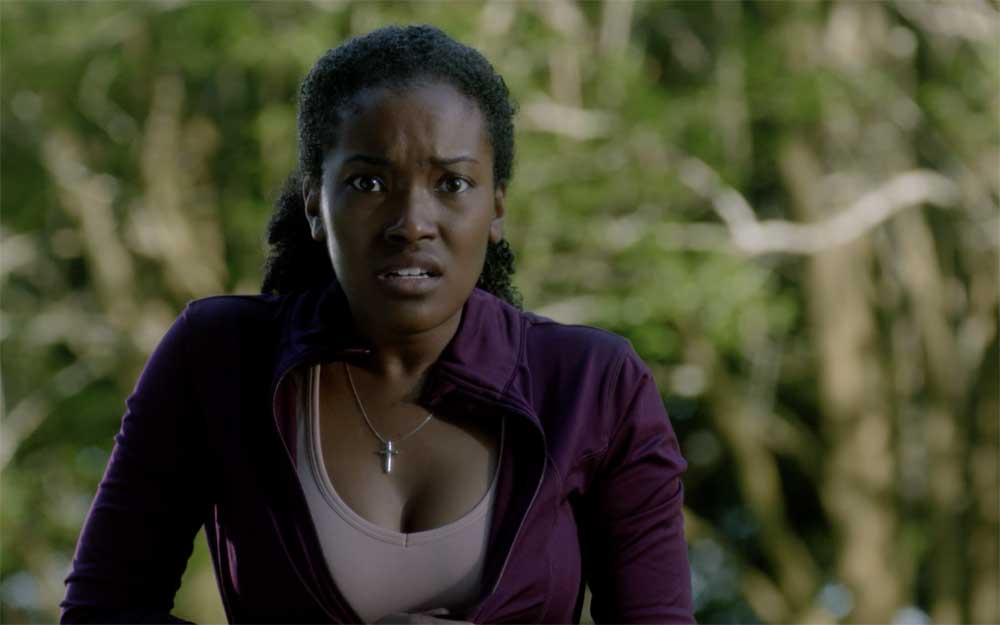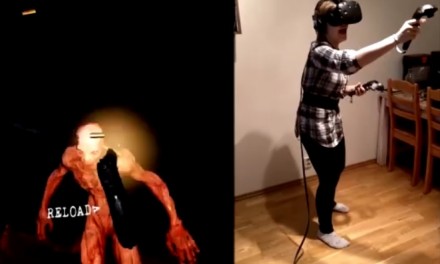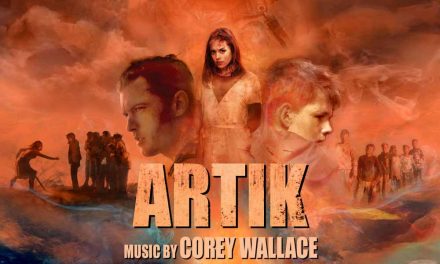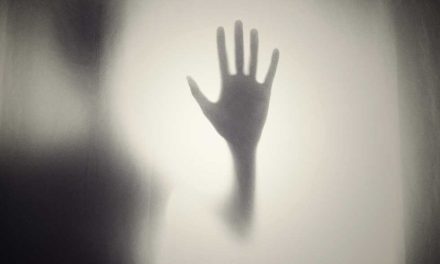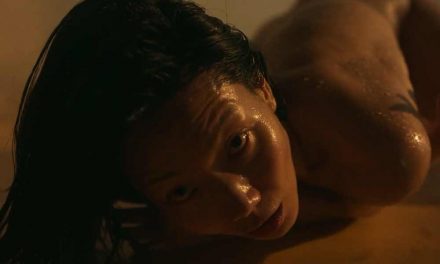INTERVIEW: Director Jeffrey Reddick and Composer Chris Thomas Discuss Working Together on the horror movie “Don’t Look Back”.
Between all the streaming channels and VOD releases, there is currently an abundance of new horror projects to watch. Whether it be the Welcome to Blumhouse series on Amazon, Netflix’s The Haunting of Bly Manor, or Sony Pictures’ The Craft: Legacy, there is something for everyone.
Another film worth noting is Gravitas Ventures’ Don’t Look Back, which is now in select theaters and on VOD. It’s worth mentioning because the director, Jeffrey Reddick, is the creator of the widely successful Final Destination franchise. He has also written screenplays for the Day of the Dead remake, Dead Awake, Tamara, and most recently The Final Wish. Don’t Look Back marks Reddick’s feature directorial debut and if his resume says anything, it’s that horror fans might want to tune in.
Almost more so than any other genre, a good score in a horror film is crucial. It sets the tone for the pacing, jump scares, knowing when something bad is about to happen, and much more. We decided to shine a spotlight on this subject and interview both the director, Jeffrey Reddick, and composer, Chris Thomas, of Don’t Look Back. Below they talk about the collaboration process.
*Chris’s Don’t Look Back score is also available on all digital platforms.
-What were some of your main notes to Chris about the score?
Jeffrey: When Chris and I first sat down to talk about the score I told him I didn’t want a traditional horror soundtrack with a lot of synthesized music and stings. One of the things that attracted me to Chris, as a composer, was that he had created music for a lot of haunted theme rides. So, I knew he had a way of telling a story through music which I thought was really important. I wanted to make sure our score complemented the film as opposed to working against it.
-You have a very long history in horror, with the Final Destination series. I know you weren’t the director for those, but were you involved with the composing process for any of those films?
Jeffrey: I’m very thrilled with how the Final Destination films turned out. As a writer, you don’t get any input as far as the music goes. But I do think we had some amazing composers and all the films. 🙂
-How hands-on were you with the scoring process for Don’t Look Back?
Jeffrey: Chris and I collaborated a lot during the process. He would send me ideas in portions of songs. Then I would give them notes and come back pretty quickly with something amazing. It was a great collaboration.
-What’s your favorite death in all of the Final Destination series?
Jeffrey: It’s hard for me to get shocked at the Final Destination movies anymore. But I will say the scene that really got me was the gymnastics in Part 5. 🙂 I literally yelled out loud in the theater. So that’s my new favorite scene.
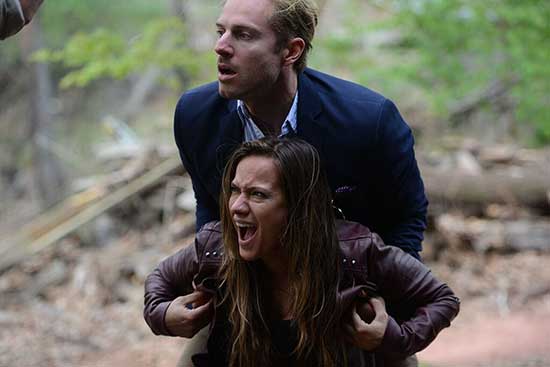
-How did you first meet Jeffrey Reddick, writer and director of Don’t Look Back?
Chris: I was on a call with the film’s producer, Andrew van den Houten, discussing another film we had been working on. He mentioned that Jeffrey was liking my compositional style in that movie, and was considering me for Don’t Look Back. He then surprised me by putting me on hold, calling Jeffery, and dropping us on the line together. That call ended up with an invite to visit the set in Baton Rouge so we could meet in person.
-The score during the opening of the film is very mesmerizing, almost enchanting like. Were you in charge of getting the woman’s vocals in that track? If so, can you talk about creating this with her? Whose idea was it to have them reoccur throughout the film?
Chris: I feel like that’s the compliment I’ve been waiting for. While the film is quite spooky, I was hoping the score would feel darkly enchanting. Like most films, the composer is responsible for finding soloists. I chose two female singers who had exactly the vocal colors I had been looking for. First, I had most of the lead lines performed by Eponine Bell, who has a bright and powerful high range. Then I had Grace Meidziak (also a brilliant young film composer) produce all the vocal textures in the score. She has a fantastic, darkly textured alto range that was a perfect fit for this score.
-Did you score the film in chronological order? I have read a lot of composers save the most important scenes until the end when they are fully immersed in the project. Do you go by this method?
Chris: Hah, I do just the opposite! There are three phases to my scoring process. First, finding the most intimate, revealing character moments. If you can find a theme and score these very personal scenes, then those themes will easily serve the rest of the movie. Second, tackle the biggest and baddest scenes. Filmmakers usually want to make sure the big, exciting, and expensive scenes are handled to perfection. The majority of fixes and revisions happen here. Finally, I go back to the beginning and score everything else straight to the end. I love this phase since the hardest work is done, everybody is already happy with the music, and I already know the themes and sounds are working for the movie.
-Can you talk about working with director Jeffrey Reddick. Did you go back and watch some of his previous horror films when you got the job? If so, which ones?
Chris: Jeffrey is a dream to work with! He knows what works in his movies, and what doesn’t. When we need to make changes, he knows just what it is that I need to revise. Not all filmmakers can pinpoint why they don’t like something, and that translates to wasted time on tight schedules. Jeffery is always on point! Also, I intentionally didn’t go back and re-watch his other works. First, as a horror fan, I was quite familiar with his work! Yet I didn’t want to fill my head with ideas from previous projects, especially since Don’t Look Back was such a unique departure from his other works. It deserved a fresh start!
-Did Jeffrey have a very clear vision of how he wanted the score to sound? Or was it more about experimentation with you?
Chris: All great film scores are about collaboration with the director. Only the director really knows what music belongs in their film. We started knowing only that the movie wasn’t just a horror film, but largely focused on character development and the supernatural. He even told me I was scoring the film because I could write a thematic drama score. Beyond that, we just experimented with sounds, tones, and themes until we got the right balance. He picked some important character scenes, and I scored them over and over until the music began to sit naturally in the picture. One day, we just knew the music was ready.
- Horror on Netflix in August 2024 - July 26, 2024
- Electrophilia – Review | Fantasia (2/5) - July 25, 2024
- The Beast Within – Review | Fantasia (3/5) - July 23, 2024

